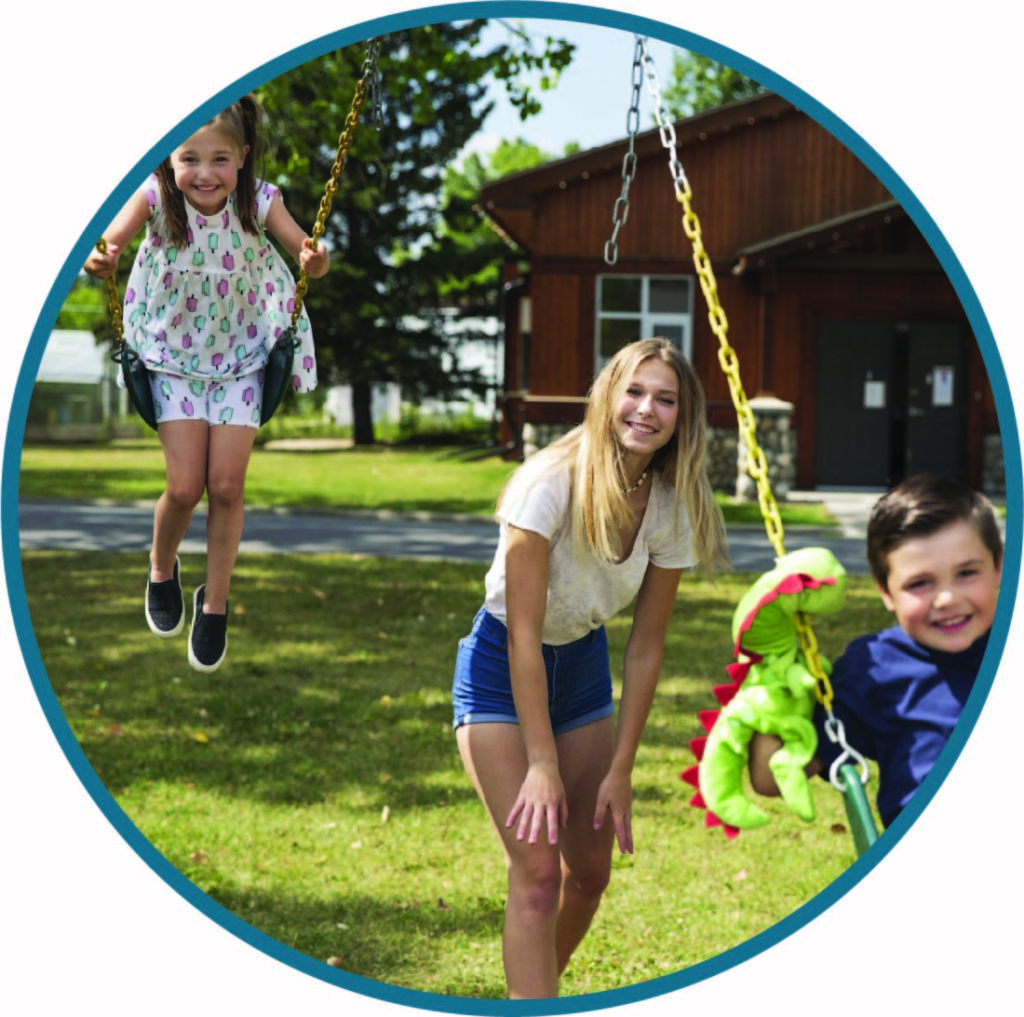The Healing Power of Play
In the summer months, Stacey Manolescu often drives home from work sitting on a towel and garbage bag. She is doing crucial work healing brains as part of the therapeutic support Hull provides young people in our care, and that often requires a good old fashioned water fight. On less sunny days, it generally entails a rousing game of dodgeball.
It sounds like fun and games, and for the kids it is. But it’s also brain science. Hull is internationally recognized for our work in leading-edge trauma-informed care. Trauma-informed recreation is a critical component in healing these young brains that have suffered the devastating impacts of developmental trauma.
“They haven’t had the chance to just be kids,” explains Manolescu, Recreation Programmer at Hull. “Biologically they are one age, but mentally they are younger because they often didn’t get to play. Perhaps they were being the adult at home and taking care of their siblings; maybe they lived in a constant state of fear; perhaps they were always put in front of a TV.”

The trauma they have suffered has disrupted their cognitive, emotional and psychological development and we need to intervene to give them a shot at a “normal” childhood and adult life. This is where the importance of play comes in. It is the first step in a sequence of engagement consisting of three stages: regulate, relate and reason. Regulation comes first because, if kids aren’t regulated, they simply cannot relate or reason.
It’s akin to driving home after a stressful day at work, fighting traffic along the way, walking into a house that’s a mess, being greeted by kids that are demanding attention, realizing that supper still needs to be cooked, and then trying to have a difficult conversation about finances with your spouse. You just aren’t in the right head space to tackle a complex problem at that particular time. When regulated, you can access your brain’s frontal cortex, which is key to making decisions; if not, you are simply reacting to everything.
It’s the same process for the young people we serve. They need to be regulated to benefit from other trauma-informed interventions. Play allows kids’ brains to build over negative neural pathways and get to a place where they can better access problem solving capabilities and learn new skills. It also creates a sense of community and belonging, develops boundaries, allows for choices, and teaches kids to be good sports and good friends.
“We are helping these kids learn skills that usually develop naturally. But if you don’t live in a safe environment, you just learn how to survive. There isn’t opportunity to learn typical skills,” says Manolescu. “There is no pressure here. Our first rule is to always have fun and, if you want to try something new, we will help you. Also if you want to stick with what you know, we will help you. The great thing about recreation as an approach to therapeutic intervention is you learn how to feel successful with yourself and in a group, whatever that may look like to each kid.”

Those successes are individual and Hull’s team celebrates every one of them. Manolescu taught an 18-year-old who had never been on a bike how to ride one this year. Another youth told her he was trying out for the school basketball team and said, “I learned how to be confident and play because you gave me a safe space to try.”
Just two examples of the many huge accomplishments for our young people and further proof of the importance of play for kids who have suffered so much trauma in their young lives.
Playing through the pandemic
Hull’s Recreation team worked tirelessly throughout the pandemic to support our young people and their families. Healing brains isn’t something that can be put on hold, so we found ways to encourage play to keep kids regulated and engaged in therapeutic interventions during the stress of the pandemic.
COVID-19 restrictions created small group cohorts, families were unable to visit on campus, other community services and supports were cancelled, and supply-chain disruptions, along with decreased funding, limited the number of craft and game supplies at our disposal. It was a challenge, but we held fast to two key principles: stick to the basics and focus on relationships.
We created activity kits, loaned equipment to families and community groups, and offered a bike program for kids, families, and our volunteers and staff. We continued to offer as many recreation opportunities as possible — we just ran them for smaller groups and more frequently to accommodate all the kids in our care.
“Society expected a lot of kids during the pandemic — wearing masks, no physical touch, periods of isolation,” says Manolescu. “COVID had a lot of ‘had to dos.’ Rec was a place where our kids could come and just have fun, feel less anxious, release emotions, and regulate.”
COVID restrictions created a silver lining with respect to Hull’s ratios of adult staff to young people. Science tells us that, biologically, kids require large amounts of adult time and attention. Young brains evolve and develop best in relationship-rich environments where adults are nurturing, supportive, and attuned to young people’s emotional needs. Brain researchers call this a “protective factor” that contributes to children’s resilience, even when they experience significant challenges in their lives. Hull maintains very low youth to staff ratios at the best of times. Our typical recreation therapy ratio has four young people supported by one adult (staff member). Those ratios were even better during the pandemic, as other Hull staff were now attending recreation therapy with their groups of kids.
When adults have opportunities to play with kids instead of telling them what to do, it builds better rapport and trust in those relationships. Nicole Berggren, Assistant Director of Hull’s Trauma-Informed Services, explains, “More positive adult interactions for kids create moments to fire neurons that create new and healthy connections for them.”
